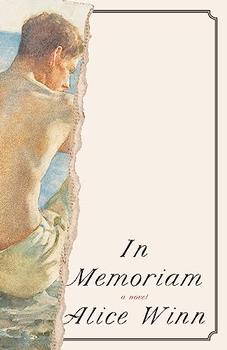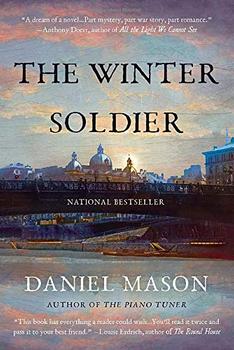Summary | Excerpt | Reviews | Beyond the book | Read-Alikes | Genres & Themes | Author Bio

A Novel
by Philip GrayThree months after the end of the Great War, a young woman sets out across the wastelands of the Western Front to learn the fate of the man she loved.
A BBC Between the Covers Book Club Pick
The Times Book of the Month (Thrillers)
On the desolate battlefields of northern France, the guns of the Great War are silent. Special battalions now face the dangerous task of gathering up the dead for mass burial.
Captain Mackenzie is a survivor of the war, but still its prisoner. He cannot return home until his fallen comrades are recovered and laid to rest. His task is upended when a gruesome discovery is made beneath the ruins of a German strongpoint. Amy Vanneck's fiancé is one soldier lost amongst many, but she cannot accept that his body may never be found. Defying convention, hardship, and impossible odds, she heads to France, determined to discover what became of the man she loved.
It soon becomes clear that what Mackenzie has uncovered is a war crime of inhuman savagery. As the truth leaches out, both he and Amy are drawn into the hunt for a psychopath, one for whom the atrocity at Two Storm Wood is not an end, but a beginning.
After a single turn the road straightened out, vanishing into the distance like a strap pulled tight across the land. Scars of wire and chalky earth criss-crossed the terrain on either side. If there was anything living, man or beast, it lay hidden below the line of sight.
They walked for a way in silence, their boots heavy with mud. Mackenzie's men were still working around the burial pit. The khaki figures shrank into the distance and vanished in the mist. Soon the women were alone.
'They were bodies in those bags,' Kitty said, finally. 'Did you see them?' 'Yes.'
'It took me a while to realise. Then I saw the shape of one and it hit me: what was under the canvas.'
'It's what they do, Mackenzie and his men. It can't be easy.' 'I'd go mad. Why not leave those dead men in the ground?' 'Because they have to be identified, if possible. And moved.' 'Why?'
'The French want their land back.'
Kitty shuddered. 'They're welcome to it.'
The mist was thickening and it was starting to get ...
Philip Gray's writing style and descriptions are powerful, and sometimes graphic, so you can almost feel the goosebumps and sodden discomfort of the cold downpour of rain, or the frightening echoes of those that were lost in the brutal trench warfare (Mary F). One thing that piqued my interest was the fact that Edward became addicted to cocaine and opium during his military life… This and other aspects of the book will prompt many discussion areas for book clubs (Virginia M). Having read many novels based on WWI, I had never read any dealing with the subjects raised in this title. I won't mention those that are spoilers, but I honestly had never thought about who was responsible for retrieving the thousands of soldiers lost in the war (Renee T)...continued
Full Review
(644 words)
This review is available to non-members for a limited time. For full access,
become a member today.
(Reviewed by First Impressions Reviewers).
 Abir Mukherjee
Atmospheric and meticulously researched, Two Storm Wood sheds light on the horrors and the trauma that continued even after the Armistice. It is that most wonderful of creations—a novel that informs while keeping you on the edge of your seat.
Abir Mukherjee
Atmospheric and meticulously researched, Two Storm Wood sheds light on the horrors and the trauma that continued even after the Armistice. It is that most wonderful of creations—a novel that informs while keeping you on the edge of your seat. Virginia Baily
In this poignant, intricately plotted novel, Gray succeeds in entwining two powerful tales—a love story and a hate story—in a way that, right from the shocking start, is both convincing and enthralling.
Virginia Baily
In this poignant, intricately plotted novel, Gray succeeds in entwining two powerful tales—a love story and a hate story—in a way that, right from the shocking start, is both convincing and enthralling. In his historical novel Two Storm Wood, Philip Gray portrays the reality of World War I mostly from the perspective of a young British officer, showing everything from the gruesome and harrowing details of war to lesser-known facts of everyday life for those serving in it. This reality includes substance use and abuse among troops. Drugs that are now heavily controlled, notably cocaine, were not only sought after by soldiers during the war but even encouraged and distributed by militaries, including the British Army.
In his historical novel Two Storm Wood, Philip Gray portrays the reality of World War I mostly from the perspective of a young British officer, showing everything from the gruesome and harrowing details of war to lesser-known facts of everyday life for those serving in it. This reality includes substance use and abuse among troops. Drugs that are now heavily controlled, notably cocaine, were not only sought after by soldiers during the war but even encouraged and distributed by militaries, including the British Army.
In general, the intersection between mind-altering substances and war is an age-old phenomenon. According to Lukasz Kamienski, author of Shooting Up: A History of Drugs in Warfare, "Throughout history, intoxicants were ...
This "beyond the book" feature is available to non-members for a limited time. Join today for full access.

If you liked Two Storm Wood, try these:

by Alice Winn
Published 2024
Winner: BookBrowse Debut Book Award 2023
A haunting, virtuosic debut novel about two young men who fall in love during World War I.

by Daniel Mason
Published 2019
By the international bestselling author of The Piano Tuner, a sweeping and unforgettable love story of a young doctor and nurse at a remote field hospital in the First World War.




Finishing second in the Olympics gets you silver. Finishing second in politics gets you oblivion.
Click Here to find out who said this, as well as discovering other famous literary quotes!